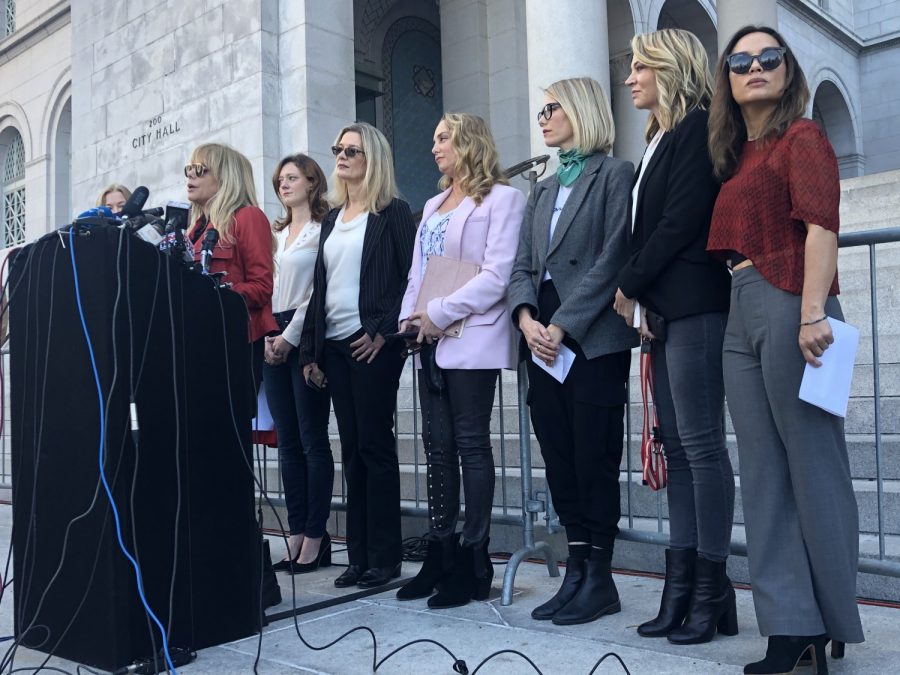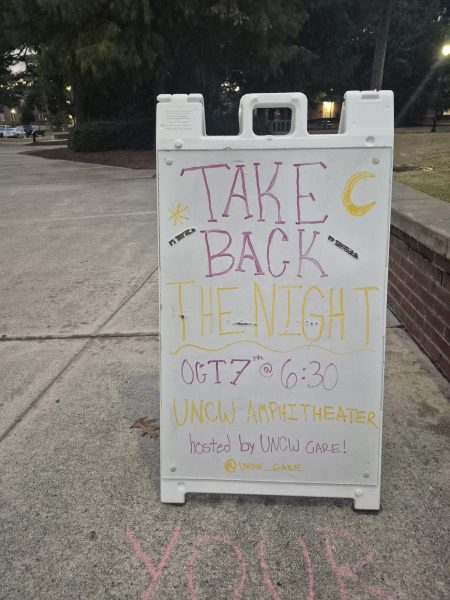Harvey Weinstein convicted on two counts of sexual assault
Laura Newberry
On theOn the morning after Harvey Weinstein’s conviction in Manhattan, actress Rosanna Arquette stands with a dozen other women who have accused the producer of sexual assault at a press conference at Los Angeles City Hall. morning after Harvey Weinstein’s conviction in Manhattan, actress Rosanna Arquette stands with a dozen other women who have accused the producer of sexual assault at a press conference at Los Angeles City Hall.
NEW YORK —After an emotional weeks-long trial and five-day jury deliberation, Harvey Weinstein has been convicted in a Manhattan courtroom of third-degree rape against one actress and committing a criminal act in the first degree against another.
The 67-year-old faces a minimum of five and maximum of 29 years behind bars. He previously faced a charge of first-degree rape and predatory sexual assault, for which he faced up to life in prison.
The guilty verdict is hailed as a turning point in the rapidly growing #MeToo movement.
“This is a big day. This is a new day,” Manhattan District Attorney Cyrus Vance Jr. said. “This is the new landscape for survivors of sexual assault in America, I believe, and this is a new day. It is a new day because Harvey Weinstein has finally been held accountable for crimes he committed.”
It all started with Tarana Burke using the hashtag in 2006 but gained worldwide momentum and recognition in October 2017 when actress Alyssa Milano used Twitter to accuse Weinstein of sexual misconduct and ask any female sex-crime victim to reply “Me too.” Within a week, over 70,000 replied to the tweet, and the hashtag #MeToo, including foreign language translations, was used more than a million times across the world. On Facebook, almost five million people used the tag, and posts, comments and reactions totaled more than 12 million.
Since then, scores of men, including other powerful, high-ranking men, have been hit with allegations of sexual misconduct. Their outcomes, however, have been varied. Former gymnastics doctor Larry Nassar is serving a virtual life sentence for the abuse of several hundred girls during his career. Former top R&B artist R. Kelly is awaiting trial for similar offenses.
“After 27 years of working in the sexual assault arena, things now just feel different,” said Kristen Houser, chief public affairs officer at the National Sexual Violence Resource Center. “Neighbors, family, friends, not just colleagues, are interested in this and they have the ability to ask more educated questions. They are slightly better informed.”
On the contrary, Republican Supreme Court Justice Brett Kavanaugh faced heavy backlash after his October 2018 appointment for a past sexual incident. Nineteen women have accused President Donald Trump, but he remains in power and was acquitted of unrelated charges at his impeachment trial earlier this month. Meanwhile, border patrol agents are alleged to sexually abuse women and children in their custody on the regular.
The Weinstein case, fortunately, was a victory for the victims. Immediately after the producer’s verdict was read, he was taken into custody and admitted to nearby Bellevue Hospital for chest pains stemming from chronic medical issues, which is the hallmark symptom of a heart attack. (However, no heart attack has been reported and Weinstein is not in serious or critical condition.) He will likely be transferred to Rikers Island, where officials are taking draconian measures to ensure that he has absolutely no contact with any other prisoners. This is necessary due to not only his high-profile nature but also the fact that prisoners heavily frown upon sex offenders.
Weinstein has reportedly hired a prison consultant to help him navigate his transition into confinement. The hiring of such advisers by criminals, particularly wealthy white-collar criminals heading to federal prison, has become a growing industry in recent years. However, one may argue that this industry helps wealthy inmates retain some of their privilege behind bars, which also ties into long-standing debates about economic inequality and the mass incarceration of poor, urban people of color. Moreover, this advice mostly applies to minimum-security camps, rather than a maximum-security lockup to which Weinstein is headed, although the former producer has been advised to keep health staff in the loop and advocate for his medical needs as much as possible.
“It would not be inaccurate to say that other prisoners tend to respect a killer more than someone convicted of a sex offense,” said Justin Paperny, CEO of White Collar Advice. “That’s going to be the biggest problem for him. And if it gets so out of control to the point where he feels threatened, he may have to check into protective custody, where he’s essentially alone because he’s just not safe.”
The entire infirmary of the notorious jail will be locked down. If Weinstein’s condition improves, he will likely have an entire housing unit to himself. Additionally, he is to have an escort whenever he moves, without exception, and many members of an elite unit will monitor him to ensure that he cannot evade his punishment via suicide. He will remain in jail until his sentencing on March 11, when New York corrections officials will choose his final destination.
Although he will need a prison job, recreation, programming, etc. because of state and federal laws, he will still need to be segregated as much as possible, just like at Rikers. But regardless of how many privileges he receives behind bars or how much time he gets, one sentiment is clear: nonviolent protests, even those by young people, really can make a difference.













